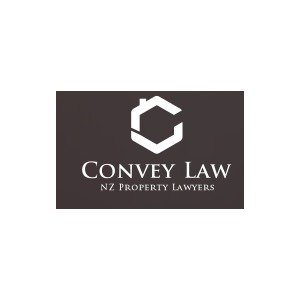Best Personal Injury Lawyers in New Zealand
Share your needs with us, get contacted by law firms.
Free. Takes 2 min.
Or refine your search by selecting a city:
List of the best lawyers in New Zealand
About Personal Injury Law in New Zealand:
Personal injury law in New Zealand covers situations where a person has been physically or psychologically injured due to the negligence or wrongful act of another party. This includes accidents, medical malpractice, workplace injuries, and more. The goal of personal injury law is to provide compensation to the injured party to help them recover from their injuries and financial losses.
Why You May Need a Lawyer:
You may need a lawyer in personal injury cases to ensure your rights are protected and to help you navigate the complex legal process. Lawyers can help gather evidence, negotiate with insurance companies, and represent you in court if necessary. They can also help determine the value of your claim and ensure you receive fair compensation for your injuries.
Local Laws Overview:
In New Zealand, personal injury claims are typically covered by the Accident Compensation Corporation (ACC), which provides no-fault compensation for personal injuries. However, there are situations where you may be able to bring a common law claim against the party responsible for your injury. It's important to understand the time limits for making a claim and the types of compensation available under New Zealand law.
Frequently Asked Questions:
What types of injuries are covered by the ACC?
The ACC covers a wide range of injuries, including physical injuries, mental injuries, and occupational diseases. However, there are specific criteria that must be met to qualify for compensation.
How long do I have to make a personal injury claim in New Zealand?
Generally, you have three years from the date of the injury to file a personal injury claim in New Zealand. It's important to seek legal advice as soon as possible to ensure your claim is filed within the time limit.
What types of compensation are available for personal injury claims?
Compensation for personal injury claims in New Zealand may include payment for medical expenses, rehabilitation costs, lost income, pain and suffering, and more. The amount of compensation will depend on the severity of your injuries and other factors.
Do I need to go to court for a personal injury claim in New Zealand?
Many personal injury claims in New Zealand are resolved through negotiation with the ACC or the at-fault party's insurance company. However, if a settlement cannot be reached, your case may need to go to court. A lawyer can represent you in court and help you navigate the legal process.
Can I still make a personal injury claim if I was partially at fault for the accident?
Yes, you may still be able to make a personal injury claim in New Zealand even if you were partially at fault for the accident. The amount of compensation you receive may be reduced based on your level of fault, but you may still be entitled to some compensation.
How much does it cost to hire a personal injury lawyer in New Zealand?
Many personal injury lawyers in New Zealand work on a contingency fee basis, which means they only get paid if you win your case. The lawyer's fee is typically a percentage of the final settlement amount, so you don't have to pay anything upfront.
Can I switch lawyers if I'm not happy with my current representation?
Yes, you have the right to change lawyers at any time during your case if you are not satisfied with your current representation. It's important to find a lawyer who you feel comfortable working with and who has experience handling personal injury claims.
What evidence do I need for a personal injury claim in New Zealand?
To support your personal injury claim in New Zealand, you will need to gather evidence such as medical records, witness statements, photographs of the accident scene, and any other documentation related to your injuries and losses. A lawyer can help you collect and organize this evidence to strengthen your claim.
What should I do if the ACC denies my claim?
If the ACC denies your personal injury claim, you have the right to appeal their decision. You can seek legal advice to help you navigate the appeals process and potentially overturn the denial. It's important to act quickly, as there are time limits for appealing ACC decisions.
How can I find a reputable personal injury lawyer in New Zealand?
You can find a reputable personal injury lawyer in New Zealand by asking for recommendations from friends or family, researching online, and contacting the New Zealand Law Society for a list of accredited lawyers. It's important to choose a lawyer with experience handling personal injury claims and who you feel comfortable working with.
Additional Resources:
For more information on personal injury law in New Zealand, you can visit the Accident Compensation Corporation (ACC) website at www.acc.co.nz. You can also contact the New Zealand Law Society for a list of accredited personal injury lawyers in your area.
Next Steps:
If you require legal assistance for a personal injury claim in New Zealand, it's important to contact a qualified lawyer as soon as possible. A lawyer can help you understand your rights, navigate the legal process, and work towards securing fair compensation for your injuries. Don't hesitate to seek legal advice to protect your interests and receive the support you need during this challenging time.
Lawzana helps you find the best lawyers and law firms in New Zealand through a curated and pre-screened list of qualified legal professionals. Our platform offers rankings and detailed profiles of attorneys and law firms, allowing you to compare based on practice areas, including Personal Injury, experience, and client feedback.
Each profile includes a description of the firm's areas of practice, client reviews, team members and partners, year of establishment, spoken languages, office locations, contact information, social media presence, and any published articles or resources. Most firms on our platform speak English and are experienced in both local and international legal matters.
Get a quote from top-rated law firms in New Zealand — quickly, securely, and without unnecessary hassle.
Disclaimer:
The information provided on this page is for general informational purposes only and does not constitute legal advice. While we strive to ensure the accuracy and relevance of the content, legal information may change over time, and interpretations of the law can vary. You should always consult with a qualified legal professional for advice specific to your situation.
We disclaim all liability for actions taken or not taken based on the content of this page. If you believe any information is incorrect or outdated, please contact us, and we will review and update it where appropriate.
Browse personal injury law firms by city in New Zealand
Refine your search by selecting a city.

















